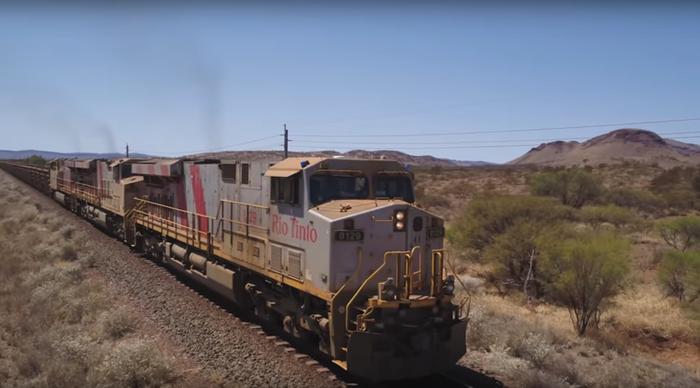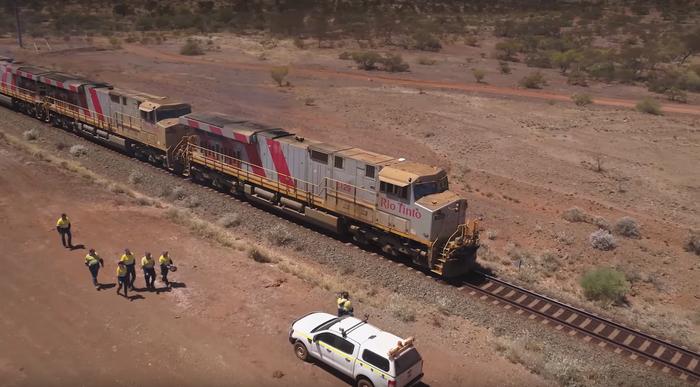Rio Tinto’s AutoHaul project has been granted accreditation by Australia's national rail regulator to run its autonomous trains without a driver in the cab.
The mining giant today announced the Office of the National Rail Safety Regulator (ONRSR) had approved fully-autonomous train operations, which will transport iron ore from Rio’s mines to port facilities in the Pilbara region of Western Australia.
Once fully commissioned by the end of this year, the network will be “the world’s first heavy haul, long distance autonomous rail operation”, Rio said in a statement.
At present around 65 per cent of all train kilometres in the Pilbara are completed in autonomous mode. To date more than three million kilometres have traversed in driverless mode, although with a driver on board ready to take control.
Officials from the ONRSR have made multiple trips to the Pilbara over the last 18 months to assess the autonomous operation, Rio said.

“The ONRSR has granted Rio Tinto accreditation for the autonomous operation of trains, after it provided evidence of its competency and capacity to manage the risks to rail safety associated with this technology,” the regulator told Computerworld.
“As with all other accredited operators, Rio Tinto’s operation will be closely and regularly monitored by ONRSR to ensure its associated Safety Management System is addressing any and all rail safety risks as far as is reasonably practicable,” a spokesperson added.
It is understood to be the first time accreditation has ever been given to a driverless rail operation in Australia.
Down the track
Rio Tinto operates around 200 locomotives on more than 1,700 kilometres of track in the Pilbara, transporting ore from 16 mines to four port terminals.
The $317.5 million contract for the development and delivery of an automated train management system including a highly-specialised modular signaling system was awarded to Ansaldo STS (a Hitachi Group company) in 2012.
Testing of AutoHaul began in earnest in 2014. The project suffered delays in early 2016, which Rio blamed on “software issues”. The first trains started running in autonomous mode with a driver on-board in the first quarter of 2017.
The budget for the project has since risen considerably, the company’s March annual report saying total approved spend for the project was up to US$940 million.
In October last year the miner completed its first fully autonomous rail journey, when a train successfully completed a 100km pilot run from Wombat Junction to Paraburdoo without a driver on board.

“Gains from AutoHaul are already being realised including reduced variability and increased speed across the network, helping to reduce average cycle times,” Rio Tinto Iron Ore chief executive Chris Salisbury said at the time.
“Rio Tinto is proud to be a leader in innovation and autonomous technology in the global mining industry which is delivering long-term competitive advantages as we build the mines of the future. New roles are being created to manage our future operations and we are preparing our current workforce for new ways of working to ensure they remain part of our industry.”
AutoHaul will unlock “significant safety and productivity benefits” Rio said, and allow the miner to increase its shipped iron ore tonnages to 353 million tonnes per annum, up from this year’s guidance of around 335 million tonnes.
In March the New South Wales government unveiled a fleet of driverless trains which it said would ferry thousands of passengers on the Northwest Metro line between Rouse Hill and Chatswood by next year. Three 240 tonne carbon and stainless steel trains are currently under testing at tracks at Rouse Hill.
Autonomous trains are fairly common across the Asia Pacific region, with fully driverless operations in China, Hong Kong, India, Japan, Malaysia, Taipei, South Korea and Singapore.

